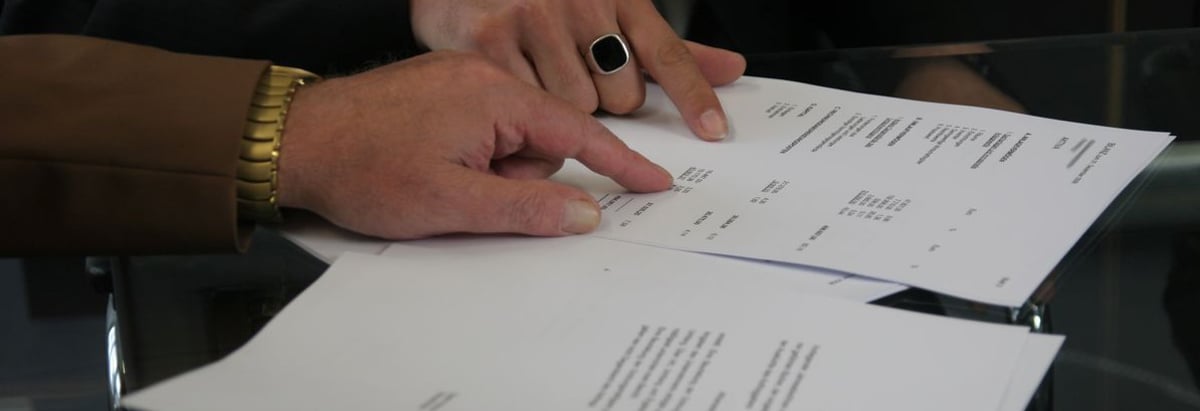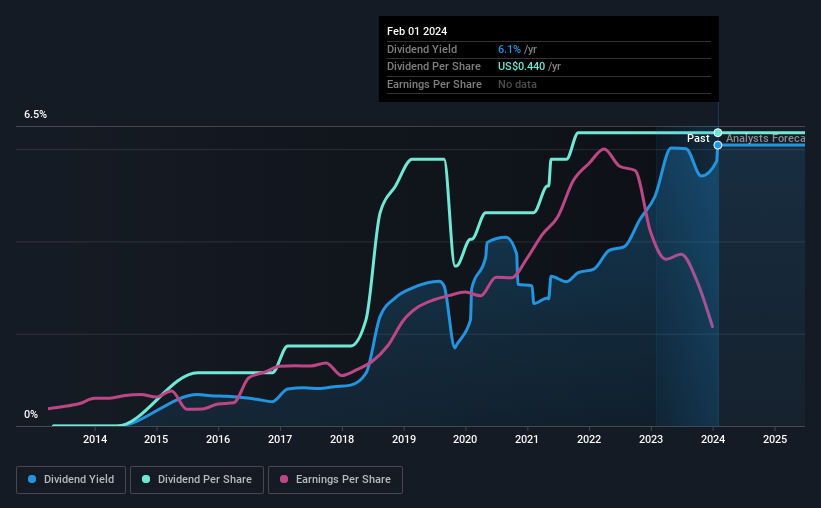
The board of Kearny Financial Corp. (NASDAQ:KRNY) has announced that it will pay a dividend of $0.11 per share on the 21st of February. This makes the dividend yield 6.1%, which will augment investor returns quite nicely.
View our latest analysis for Kearny Financial
Kearny Financial Not Expected To Earn Enough To Cover Its Payments
While it is great to have a strong dividend yield, we should also consider whether the payment is sustainable.
Kearny Financial has a good history of paying out dividends, with its current track record at 8 years. Past distributions unfortunately do not guarantee future ones, and Kearny Financial's last earnings report actually showed that the company went over its net earnings in its total dividend distribution. This is worrying for investors of Kearny Financial, as it points towards the dividends being unsustainable in the long term.
Over the next year, EPS is forecast to expand by 23.9%. Assuming the dividend continues along recent trends, we think the future payout ratio could reach 117%, which probably can't continue putting some pressure on the balance sheet.

Kearny Financial's Dividend Has Lacked Consistency
Looking back, Kearny Financial's dividend hasn't been particularly consistent. This makes us cautious about the consistency of the dividend over a full economic cycle. Since 2016, the annual payment back then was $0.08, compared to the most recent full-year payment of $0.44. This works out to be a compound annual growth rate (CAGR) of approximately 24% a year over that time. Despite the rapid growth in the dividend over the past number of years, we have seen the payments go down the past as well, so that makes us cautious.
Kearny Financial May Find It Hard To Grow The Dividend
Growing earnings per share could be a mitigating factor when considering the past fluctuations in the dividend. However, Kearny Financial's EPS was effectively flat over the past five years, which could stop the company from paying more every year.
We're Not Big Fans Of Kearny Financial's Dividend
In summary, while it is good to see that the dividend hasn't been cut, we think that at current levels the payment isn't particularly sustainable. The company seems to be stretching itself a bit to make such big payments, but it doesn't appear they can be consistent over time. Considering all of these factors, we wouldn't rely on this dividend if we wanted to live on the income.
It's important to note that companies having a consistent dividend policy will generate greater investor confidence than those having an erratic one. Meanwhile, despite the importance of dividend payments, they are not the only factors our readers should know when assessing a company. For example, we've picked out 2 warning signs for Kearny Financial that investors should know about before committing capital to this stock. Looking for more high-yielding dividend ideas? Try our collection of strong dividend payers.
Valuation is complex, but we're here to simplify it.
Discover if Kearny Financial might be undervalued or overvalued with our detailed analysis, featuring fair value estimates, potential risks, dividends, insider trades, and its financial condition.
Access Free AnalysisHave feedback on this article? Concerned about the content? Get in touch with us directly. Alternatively, email editorial-team (at) simplywallst.com.
This article by Simply Wall St is general in nature. We provide commentary based on historical data and analyst forecasts only using an unbiased methodology and our articles are not intended to be financial advice. It does not constitute a recommendation to buy or sell any stock, and does not take account of your objectives, or your financial situation. We aim to bring you long-term focused analysis driven by fundamental data. Note that our analysis may not factor in the latest price-sensitive company announcements or qualitative material. Simply Wall St has no position in any stocks mentioned.
About NasdaqGS:KRNY
Kearny Financial
Operates as the holding company for Kearny Bank that provides various banking products and services in the United States.
Flawless balance sheet with reasonable growth potential.
Similar Companies
Market Insights
Community Narratives




